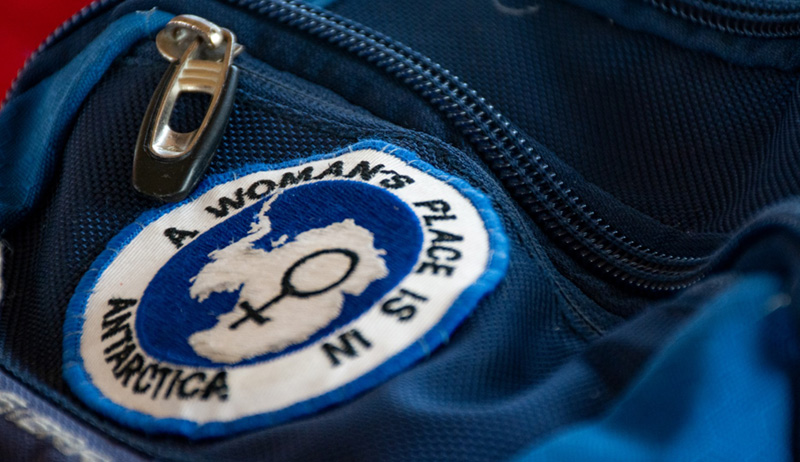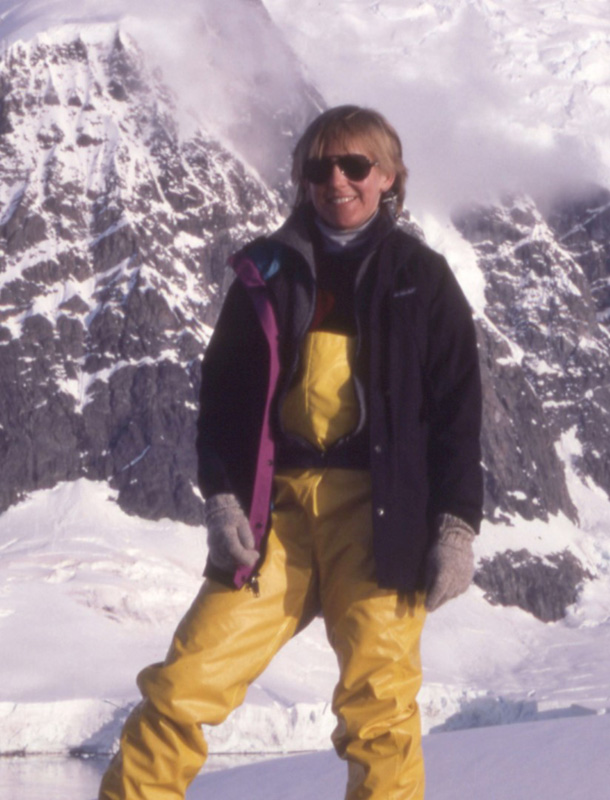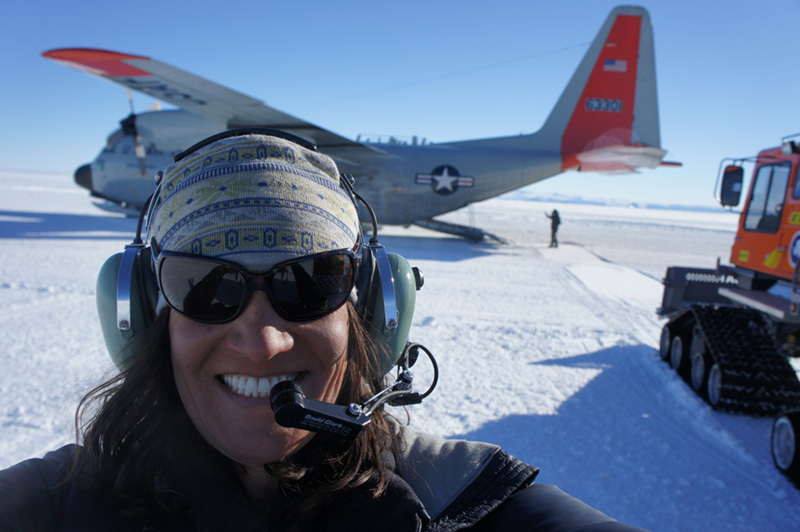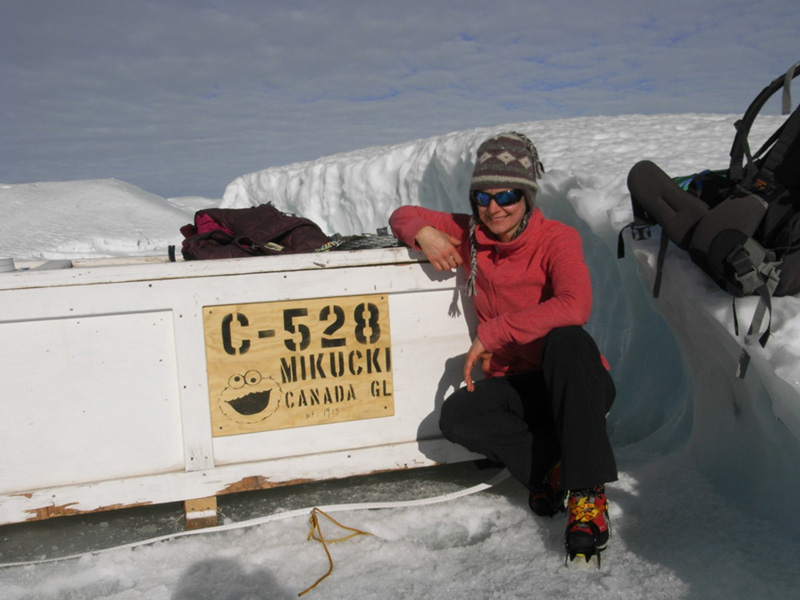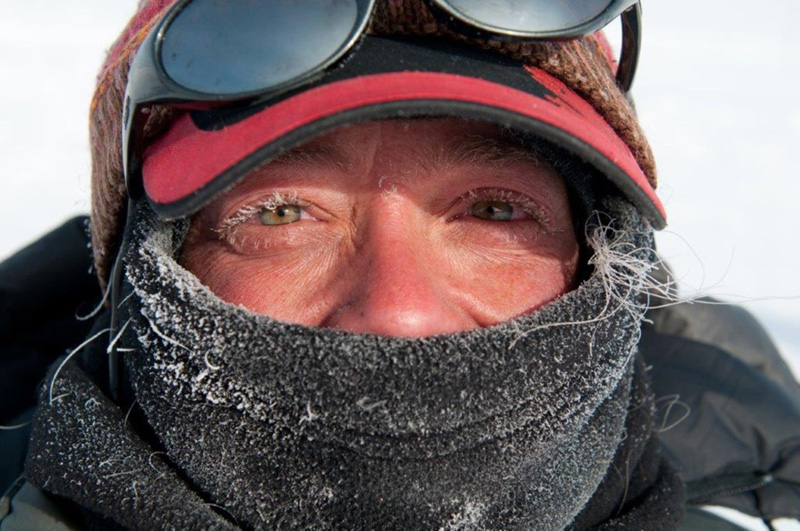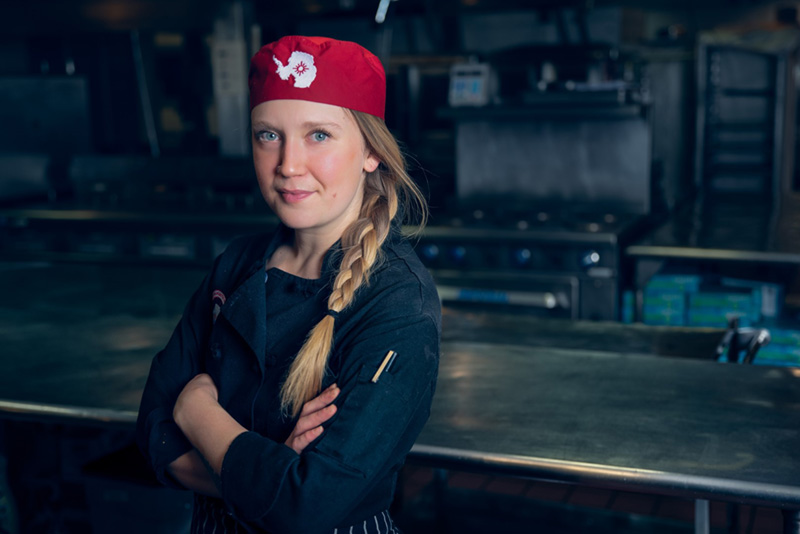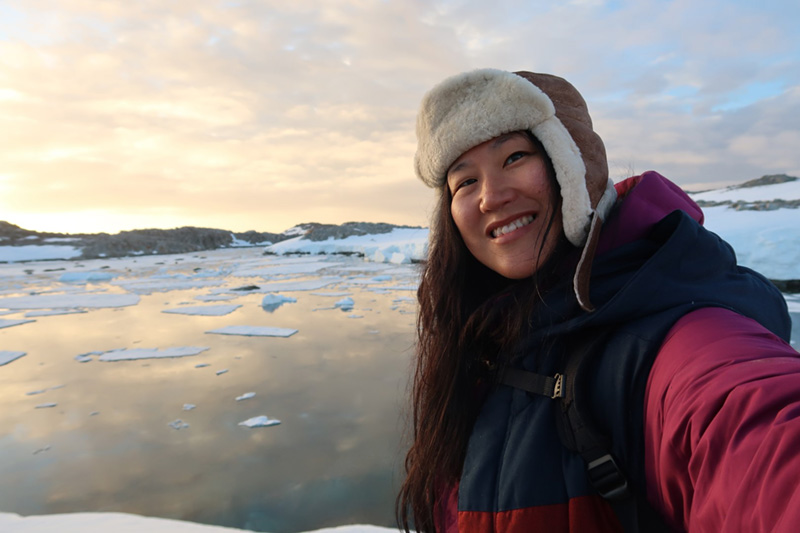50 Years of Women in AntarcticaPosted October 23, 2019
Fifty years ago, four female researchers traveled to the McMurdo Dry Valleys, opening the door for women to work on the frozen continent. Though not the first women to set foot there, their success showed unequivocally that women were every bit as capable as men to work in Antarctica. Last week, The Byrd Polar Research and Climate Center hosted a special Women in Antarctica symposium to commemorate that important milestone and The Antarctic Sun took a close look at their historic expedition. Since then, much progress has been made. Today, women are integral members in a wide array of logistical operations, a part of every scientific discipline and serve as senior leaders in both the civilian U.S. Antarctic Program and Joint Task Force-Support Forces Antarctica, the military units that support the Antarctic Program. However, even today, men outnumber women in the program nearly two to one. A decade ago The Antarctic Sun put together a special series of articles highlighting women in Antarctica. Of course, that's not the end of the story. To get an up-to-date, personal view of the progress that has been made and the challenges that continue to persist, The Antarctic Sun talked to a dozen women from across the program to learn their stories about working on the icy continent. Here are their perspectives, in their own words: 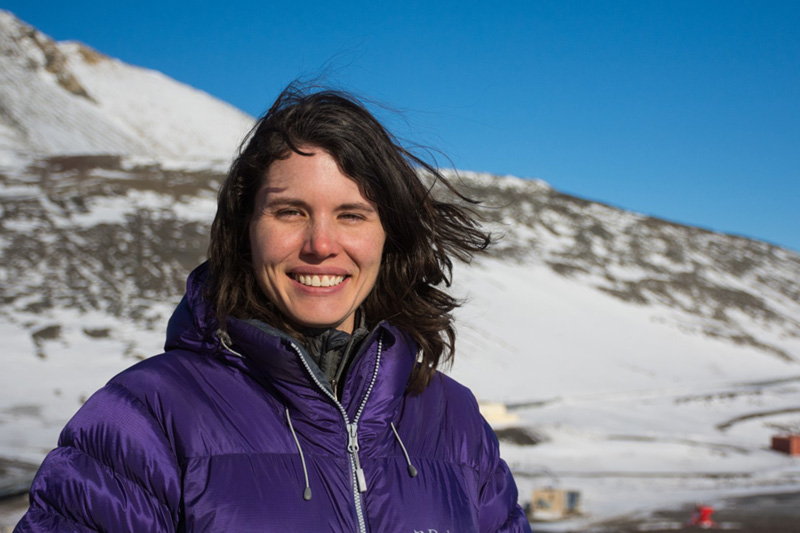
Photo Credit: Jessie Crain
Jessie Crain, Antarctic Research Support Manager in the Office of Polar Programs' (OPP) Antarctic Infrastructure and Logistics section.
Jessie Crain (NSF)Antarctic Research Support Manager in the Office of Polar Programs' (OPP) Antarctic Infrastructure and Logistics section. "There are definitely more men just statistically around McMurdo Station and South Pole, but it always seemed like women were represented at some level in the leadership of both the contractor and the science community. Maybe not in terms of numbers, but in terms of presence. I saw the first women becoming NSF representatives and the first women leading the contractor organization both at a head level and locally in McMurdo. And now seeing the leadership within NSF, our section head is now a woman and the head of the Office of Polar Programs is now a woman, the current NSF director is a woman. There's a woman who's the wing commander at the 109th Airlift Wing, there's a woman who's the deputy commander at the Joint Task Force in Hawaii, and I've now been in meetings where we're trying to decide what do to with some element of the field program, and sometimes everyone in the room is a woman. It's still not, I would say, statistically representative, but it's becoming more the norm. I think there's still a ways to go, and there are, for whatever reason societally there are positons where you have fewer women." Maggie AmslerBiologist at the University of Alabama at Birmingham "I understand that in the 1970s and know from personal experience even through the 1980s it was not the most welcoming environment. I'd kind of get the double whammy, being at Palmer where, for the most part gender friction was not evident. But then you'd go out to sea for krill collecting trips and some of the ship's crew in general didn't like sailing with women and clearly opposed doing so in Antarctica. In fact, one time I was chief scientist, I got to call the shots for our portion of the cruise, and I had laid out this cruise track and one of the mates wouldn't follow it. I had to get the Marine Projects Coordinator involved and the captain involved and it made for awkward relations. Fast forward to now and it's so much better. There's been so much emphasis on awareness and diversity training and sensitivity training. I think problems that were experienced years ago, will remain relics of the past." 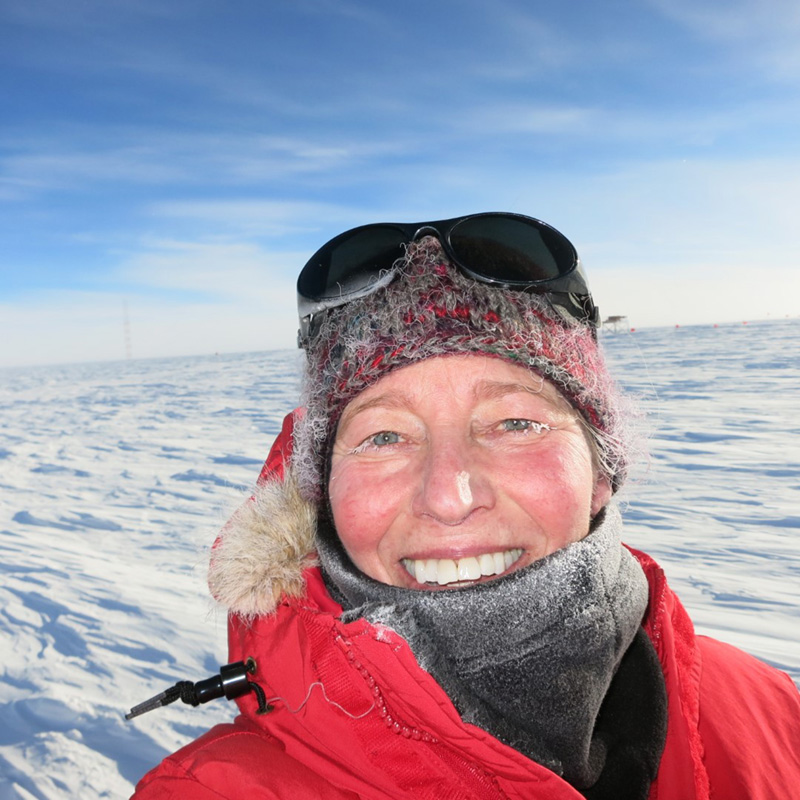
Photo Credit: BK Grant
BK Grant - Former deputy project director for the Antarctic Support Contract (ASC)
BK GrantFormer deputy project director for the Antarctic Support Contract (ASC) "There were women in managerial or supervisory roles when I started [in 1990] and there were certainly women that I had as role models. But I think over time we've definitely seen an increase in influence and talent. I don't know if that's a reflection of women in the workplace as a whole, or just the fact that we had women in the Antarctic that knew the roles they wanted to take and they persevered. What I noticed as more women have come into the program is that there is a different approach to decision making. Everybody brings their own unique perspective, and I think the temperament of the program has changed over time. In my opinion that's a good thing, it becomes more reflective of our society as a whole. I think that any time you bring diversity into a community or any situation, you open up to more ideas, more ways to solve problems, and ultimately have better dialogue." Julie Grundberg, (ASC)McMurdo Area Manager "In McMurdo I feel like the most important part of my job is to look out for the community, and to make sure that they're safe, that their morale is high, that they understand how important the mission is and the work that they're doing, no matter at what level. A big part of that is making sure that the women, who are very much a minority in numbers, are getting what they need. This gender imbalance in large part goes unnoticed and I think it's important to draw attention to it. There's so much that women bring to this program, including collaboration, communication, and diplomacy. I think having the unique perspectives of people who have come from different backgrounds and have grown up in different ways is really important to the strength of any organization, and this one as well." 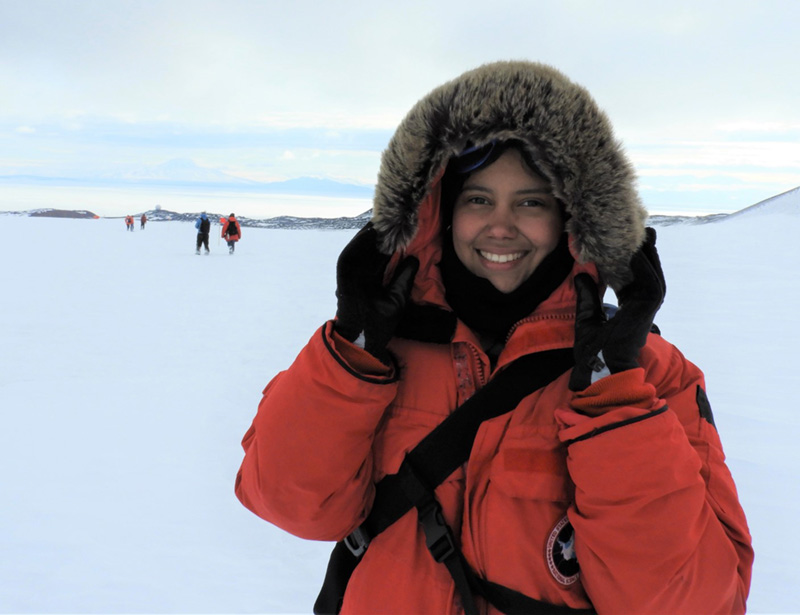
Photo Credit: Melisa Diaz
Melisa Diaz - National Science Foundation Graduate Research Fellow at Ohio State University
Melisa DiazNational Science Foundation Graduate Research Fellow at Ohio State University "I benefit from people paving the way. I have a little bit of a different situation because I'm a woman but I'm also a woman of color so I'm used to people turning their head if I walk by because they're not used to having as many people of color down on the ice. But I think the women that came before were just such strong people and made their presence known, but also emphasized the necessity of their roles in Antarctica. They're incredible people. I mean everyone from the scientists to the people who work doing all of the sorts of jobs in McMurdo. These women are such powerhouses." "I think it's hard, at least for me personally, its' really hard as a woman in a field camp. To be explicit, when it's your time of the month and you can't shower that often, it's pretty miserable. I'm fortunate that there were senior scientists on my team, who were supportive. As a woman at a field camp that's so remote, it's hard to not be so acutely aware of your gender, because again there's just not so many people there. At McMurdo Station, even though the ratio of men to women is really high, you can find groups that are predominantly women. But when there are such few people at your camp, you're just kind of stuck with whoever is there. I'm not saying that's a bad thing, it's just something that took some getting used to." Jill MikuckiMicrobial Ecologist at the University of Tennessee "Thefirst time I ever felt like a scientist, even though I already had a master's degree, was my first field season in Antarctica, staring at the Taylor Glacier. There's just something about the rigor and the way science is done down there. I love the collaboration and I love the energy of making impossible projects work. It's just a really exciting, powerful thing to be a part of. I want to make sure that the next generation, the current graduate students, I want them to see themselves as sticking with research on Antarctica as a career. The research that they're doing is really important, it's really interesting, and it's critical. These are fundamental questions about how our planet works and these are sensitive areas due to climate change, so when I see women starting their career there, I see so much value in them building their entire career on polar research, so I hope that they are comfortable and that this is a place for them." Bija Sass (ASC)Field Support Supervisor "Antarctica is an incredible place with incredible people. This community is filled with some of the most creative, innovative, intelligent, hardworking, eclectic, capable, strong and determined humans to name a few characteristics. Unfortunately, I can't say whole heartedly that ‘gender unbiased' is one of them. I include myself when I say that we still have a lot of work to do as a community to create a more equal environment. In a place that is a frontier in many respects of the word, pushing the limits of what we think is possible and at the cutting edge of science, I don't believe we are at the forefront of creating a culture that supports and promotes gender equality. I'm hopeful since there are many individuals in Antarctica who are dedicated to working on it and learning. Though women are few in Antarctica, the women here are physically and mentally mighty and I'm hopeful that they can help push the status quo. I know too, that if we give that same level of curiosity and desire to explore- that ‘frontier' mentality- to this aspect of our world, we can help build more momentum towards a culture of equality but it does require all of us putting in that effort regardless of our gender." 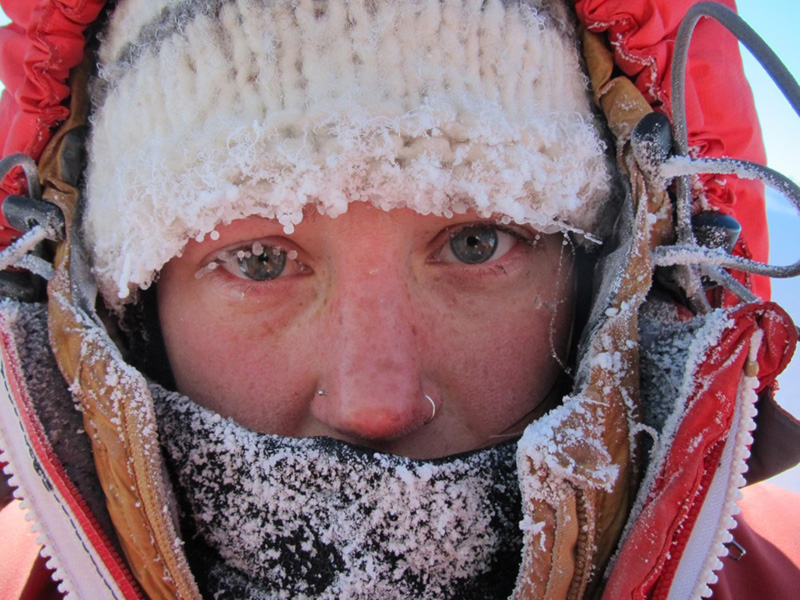
Photo Credit: Meghan Walker
Meghan Walker - Field Science Implementation Manager & Acting Field Area Manager
Meghan Walker (ASC)Field Science Implementation Manager & Acting Field Area Manager "You know you're a woman in Antarctica. It's clear. I don't think that it ever really fades from your awareness. I have heard that it is much different now that what it has been, and of course progress has been there. Every position that I have held I have felt a level of adversity but in a different format. "I have two kids. I found out that I was pregnant with my oldest, Manu, when I was in Antarctica, and negotiating for the field science manager job. I thought ‘this is definitely a no-go, this is the end of my Antarctic deal.' So I sought council from some trusted high level men, and they were like ‘Nope, we can do this. The program is ready for this to happen.' They made some concessions, I got the job and we kind of restructured how the job was done. It wasn't without a lot of difficulty, but the next time I went to Antarctica, I was floored at how many women made comments to me about it. ‘That's so great, the door is open.' Since then, the number of women in the program having children and continuing with their job, is ajar. "The first time through it, I was very private about all the things that were happening to me as a new mom or as a pregnant woman. I just didn't speak of it because I felt guilt that I was pregnant in my job and I felt judgment from everywhere. I did get a lot of terrible comments and judgement, but the second time, I was very verbal. I was like ‘This is what women have to do in order to do their job. And I am better at my job because I have children than I was before. I have a greater level of empathy." 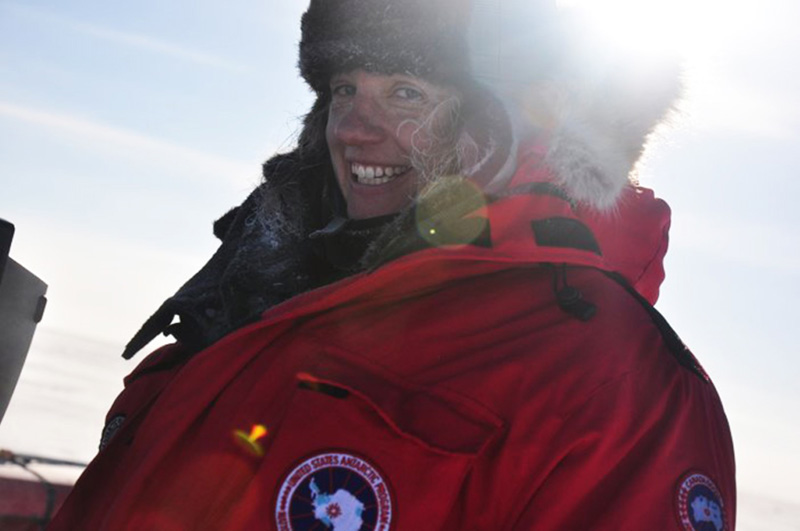
Photo Credit: Zoe Courville
Zoe Courville - Research mechanical engineer at the Cold Regions Research and Engineering Laboratory
Zoe CourvilleResearch mechanical engineer at the Cold Regions Research and Engineering Laboratory "Being a mom, it is almost surreal to compare the two parts of my life. When I'm in Antarctica, for better or for worse, I tend to feel really distant from being at home and being a mom because it's so different and there aren't that many people that I work with in McMurdo and on the South Pole Traverse that have kids to relate to that experience. When I come home after being in a field camp I tend to have what I call field camp mouth so I swear a lot and I have to really clean up my whole way of talking when I get home. So that part is weird. It's fun when I've had people that I work with in Antarctica meet my family, but that is also a two worlds colliding kind of thing. "I visit a lot of school groups to talk about my job and I think that when I show up to talk to kids about working in Antarctica, I am not who they are expecting. I don't think they're thinking that a soft spoken female is going to be out doing those things, and I think that it just opens up their minds. I had been talking to a Dartmouth group years and years ago. I guess I had popped out of one of our freezers that we use as a lab to talk to the kids, and one of those students ended up working here at the lab as an intern and ended up going to Greenland. She told me later that just me coming out of this cold room and talking to them about ice cores, had completely changed her view of what was possible as a job. The first time I told someone I wanted to go to Antarctica, it was my master's thesis advisor, and he did not think it was a good idea at all. Not everyone is going to agree with what you want to do, but you don't always have to listen to them." 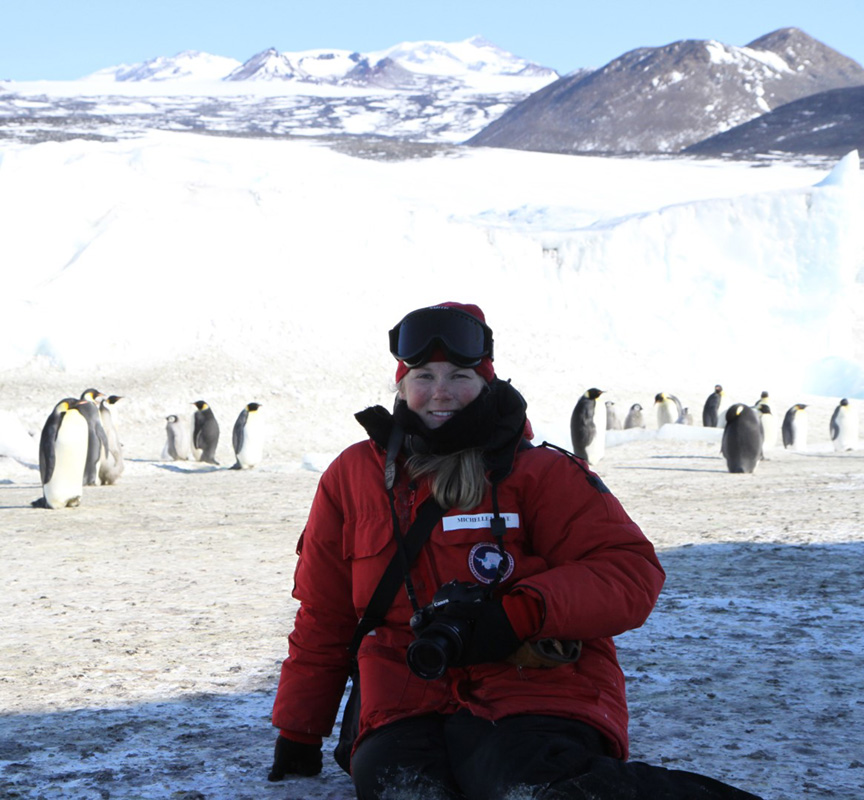
Photo Credit: Brad Herried
Michelle LaRue - Marine Scientist at the University of Canterbury in New Zealand and a research associate at University of Minnesota
Michelle LaRueMarine Scientist at the University of Canterbury in New Zealand and a research associate at University of Minnesota "Most of my challenges in being a woman in both academia and in doing research in Antarctica have come in physically being in the field in Antarctica. The first time I went down there, I was not only sent down by myself, but I was the only woman on my field team. We had six people on our team and I was the only woman and also the youngest person and also I was leading the group. It was a lot. That was a challenge, not necessarily because I was a woman, but I was the only woman. Sometimes people say stuff that maybe they shouldn't say, it was an interesting challenge. "The idea of celebrating women in Antarctic research is a really good idea because it has been so heavily male dominated. Research and science is, largely speaking very male dominated anyway so I think it's great to remind people that women are out there and doing these kinds of things. "This is a place where we should be inclusive. This is Antarctica, it's supposed to be the most inclusive places on Earth. Even though it's one of the most inhospitable places to go, no one owns it, no one has dominion over it, and so we should be making sure that we should be including anyone who wants to be involved because some of the biggest questions and the most challenging questions to figure out are in Antarctica and we need everyone onboard." Rose McAdoo (ASC)Sous Chef at McMurdo's Long Duration Balloon Facility "I was expecting to be one of maybe two or three women in the McMurdo kitchen. To get down there, and realize that there was so many women in the program - not only in the kitchen but so many women in positions of leadership around the entire station - it was a much more well-rounded and diverse group of people than I was expecting and prepared for. Kitchens as a whole are vastly male-dominated, so to be working in a male-dominated industry and then go down to a historically male-dominated continent, I was surprised and excited to find a huge percentage of women in that kitchen. I found it to be a very balanced and empowering team dynamic for both our male and female chefs. I don't think that would have been the case if there weren't as many women in leadership positions on base. "Working as a woman in Antarctica was a much more accepting culture than I thought it would be. I thought I was going to have to work a lot harder to fit in or to make friends or to be taken seriously in my role. I definitely didn't find that to be the case. I was constantly surprised to find these incredible women in the fuels department, and as heavy equipment operators, at the Berg Field Center, at the Vehicle Maintenance Facility, and it was really inspiring to see so many women in full bibs and Carhartts, doing the exact same job as anyone else. I think when you have women in leadership roles, especially in male dominated industries, you often find other women being given a chance in roles that they may not otherwise get." Keri Nelson (ASC)Station Administrator at Palmer Station "It's had a really different atmosphere of skewed gender numbers, starting right from the beginning. It's a history that lets you know that really they didn't let women really work for the program in the way that we do now until the late 1970s and 1980s in Antarctica. So I realize how short of a time period that it's been that I even could have had the kind of life that I can have down there. There's really not that many decades that I could have been working down there like I am right now. It feels like you have this honor to be down there to be in this amazing place that not many women would have gotten to go to. And it feels like you want to represent and to be tough and to be worthy. Antarctica calls for all of us, men and women whoever to be rugged, to be an explorer and take whatever the continent throws at you. "I love Antarctica, I am so addicted to this beautiful polar place. I like being involved in this idea of humanity. That even if our contractor jobs that aren't directly related to science, we're part of this thing where a bunch of countries have agreed to cool their jets, and do science with information shared by all, and work on things that are good for human kind. That's the agreement, that's the deal, and we're part of that." |



For USAP Participants |
For The Public |
For Researchers and EducatorsContact UsU.S. National Science FoundationOffice of Polar Programs Geosciences Directorate 2415 Eisenhower Avenue, Suite W7100 Alexandria, VA 22314 Sign up for the NSF Office of Polar Programs newsletter and events. Feedback Form |

